The Olympus PEN E-PL9 combines the unique PEN style with generous features. Audley Jarvis learns whether it’s Olympus’s best entry-level mirrorless model to date

Alongside the E-PL8 that was released in 2016, the E-PL9 serves as the entry point to Olympus’s PEN family of retro rangefinder-inspired mirrorless digital cameras. Positioned by Olympus as a fashionable entry-level camera for style-conscious users, the E-PL9 is primarily targeted at bloggers and first-time mirrorless buyers looking to upgrade from their smartphone. As such, it’s designed to be small, stylish and easy to use.
Features
The E-PL9 is built around a 16MP Four Thirds CMOS sensor that has been widely employed by other entry-level and mid-range Olympus mirrorless cameras over the past few years. This has proved to be very capable in the past, delivering image quality that is far above anything that could be expected from a small-sensor compact or a smartphone camera. While the sensor remains unchanged, the E-PL9’s image processor has been upgraded to the TruePic VIII – as used by both the OM-D E-M10 Mark III and the flagship OM-D E-M1 Mark II. The primary benefit this brings is 4K video capture at 25fps, along with a 120fps slow-motion capture mode. It’s also possible to extract 8MP still images from 4K footage while in playback mode. While the E-PL9 features twin stereo microphones directly in front of the hotshoe, there’s neither a dedicated microphone input nor a headphone socket.
The E-PL9 also inherits the same 121-point contrast-detect AF system found inside the OM-D E-M10 Mark III, which provides an 11x11 grid that covers the majority of the frame, with only a small border around the edges left uncovered. In addition to single-point AF, the E-PL9 also provides nine-point group AF and a fully automatic AF mode that employs all 121 AF points. Face priority and Face/Eye priority are also provided for easy portrait shots, while autofocus modes extend to Single (S-AF), Continuous (C-AF), Tracking (C-AF + TR) and Manual focus (MF).
Esta historia es de la edición April 14,2018 de Amateur Photographer.
Comience su prueba gratuita de Magzter GOLD de 7 días para acceder a miles de historias premium seleccionadas y a más de 9,000 revistas y periódicos.
Ya eres suscriptor ? Conectar
Esta historia es de la edición April 14,2018 de Amateur Photographer.
Comience su prueba gratuita de Magzter GOLD de 7 días para acceder a miles de historias premium seleccionadas y a más de 9,000 revistas y periódicos.
Ya eres suscriptor? Conectar

Calling The Shots: A Queer History of Photography
Offering an unprecedented view of photographic history through a queer lens, this is a wonderful and powerful book, says
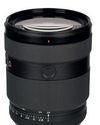
Large-aperture standard zoom, too
SONY has also revealed a new premium standard zoom, the FE 28-70mm F2 GM.
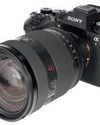
Super-fast, high-res Sony Alpha Ai II
SONY has announced its new professional full-frame flagship camera, the Alpha A1 II.
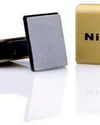
39 awesome accessories
Our round-up of the best accessories we've used and reviewed this year, along with some old favourites. There's something here for every budget, starting from just £7, including tripods, bags, filters and much more

Such a thing as society
This autumn sees the launch of a major new book and exhibition devoted to examining the multiplicities of photography during 1980s Britain. Peter Dench finds out more

Join Club
The sociable Canvey Island Photographic Club is keen to grow its in-person meet ups

Capturing flight
Winners and finalists of Bird Photographer of the Year share their tips for success with Hollie Latham Hucker
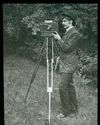
140 years of change
AP has become the world’s oldest surviving consumer photo magazine because we have moved with the times, says Nigel Atherton

Preserving history in platinum
A deep dive into the meticulous art of platinum printing, and the collaboration between the Royal Geographical Society and Salto Ulbeek. Mike Crawford explores how they brought historical photographs to life with enduring beauty and precision
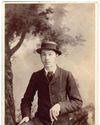
Life in the past lane
What was life like for an amateur photographer in 1884? John Wade takes a trip back in time